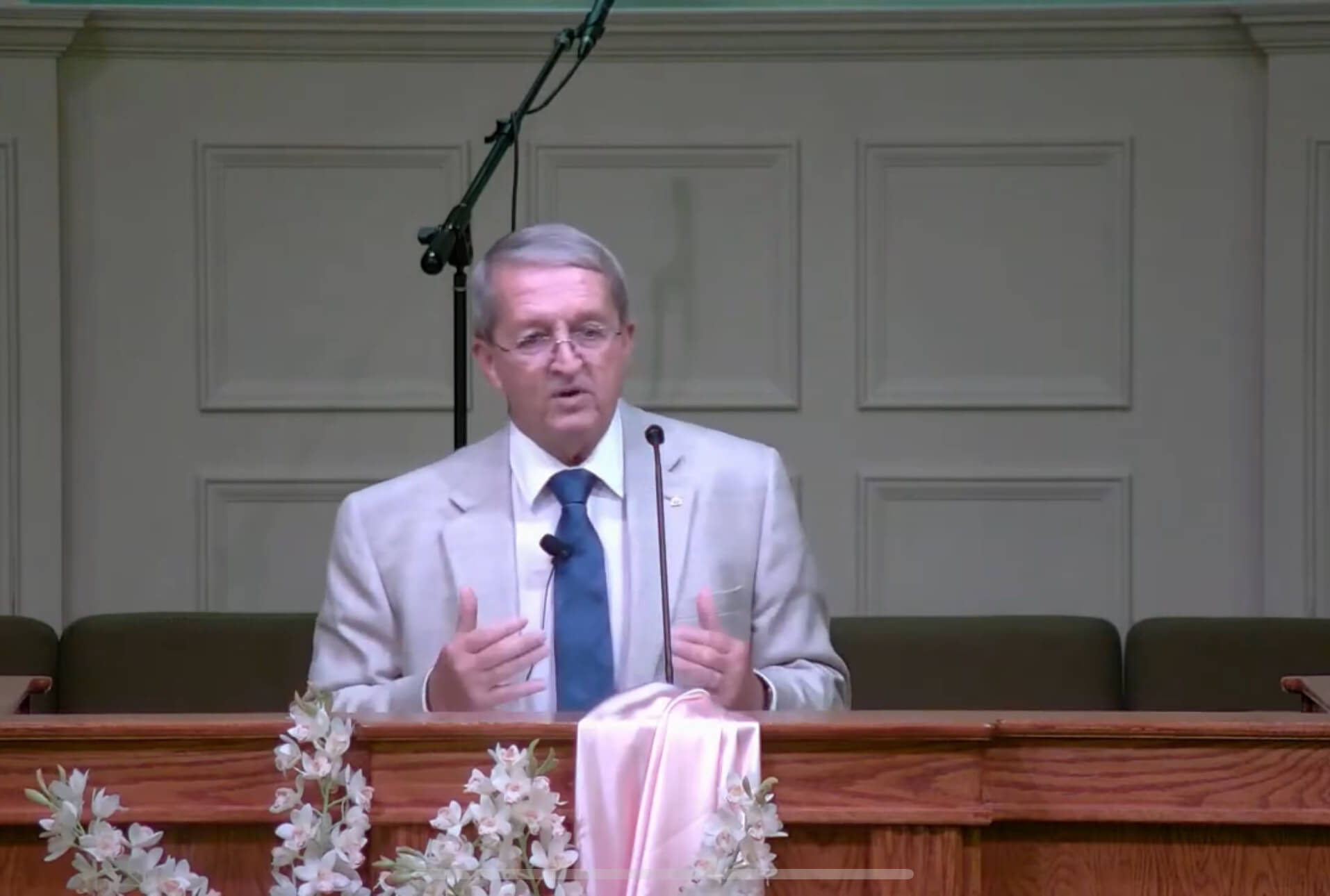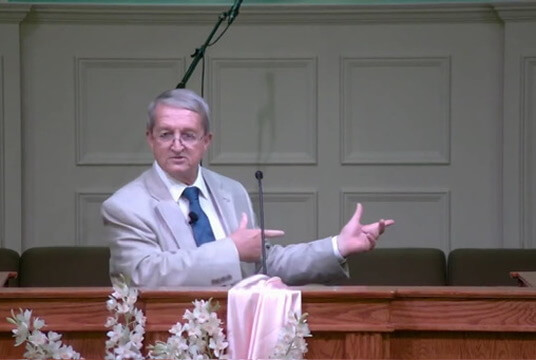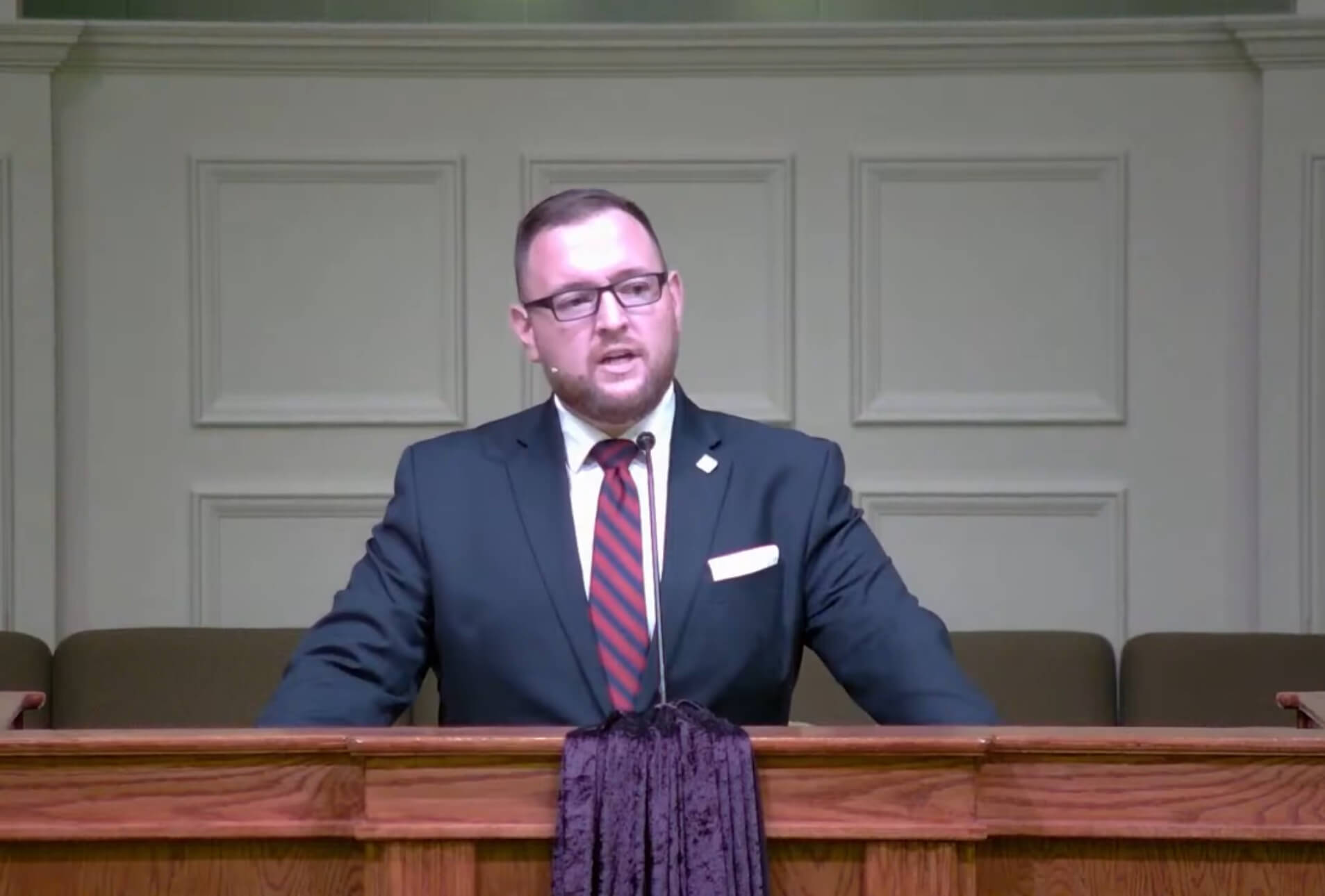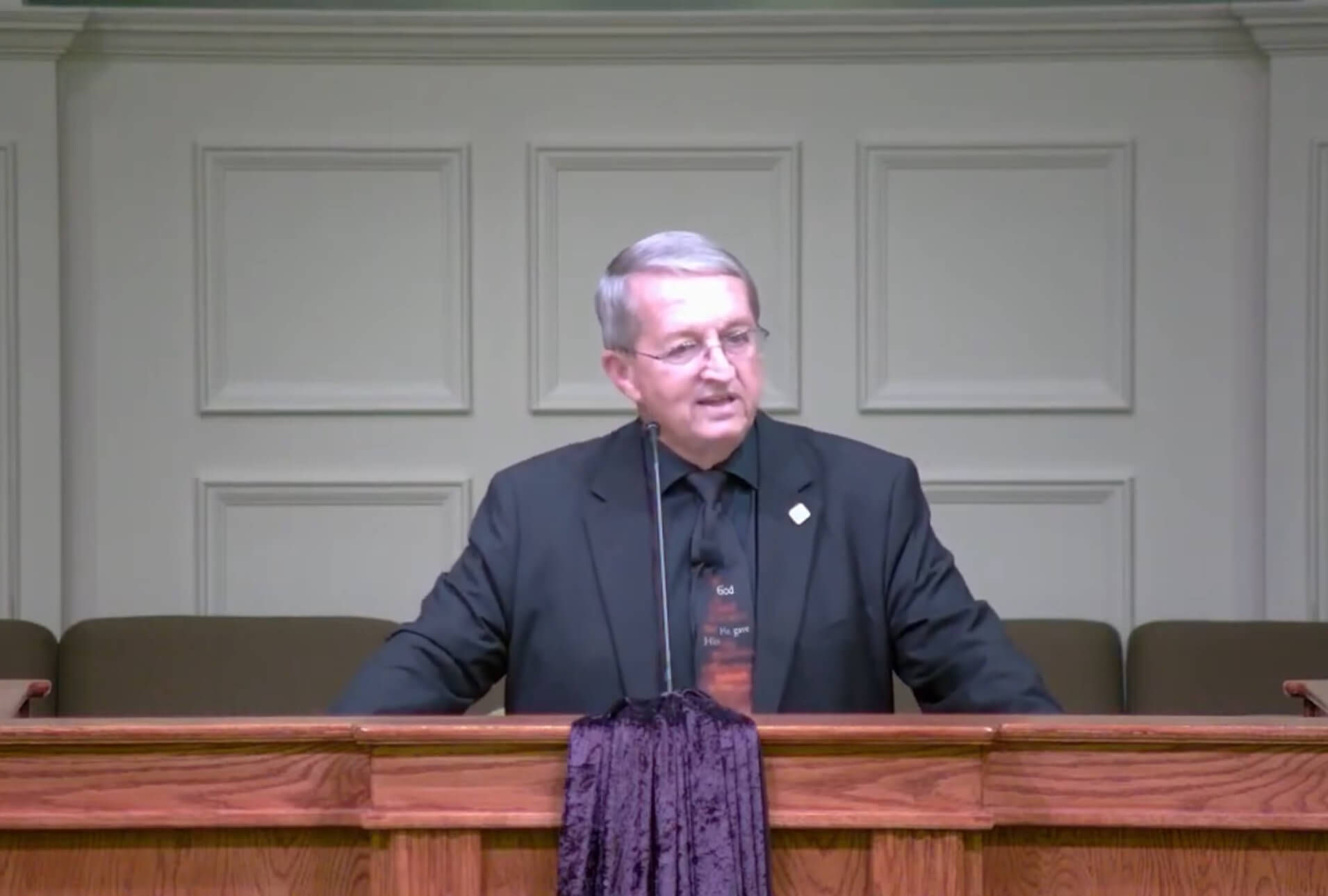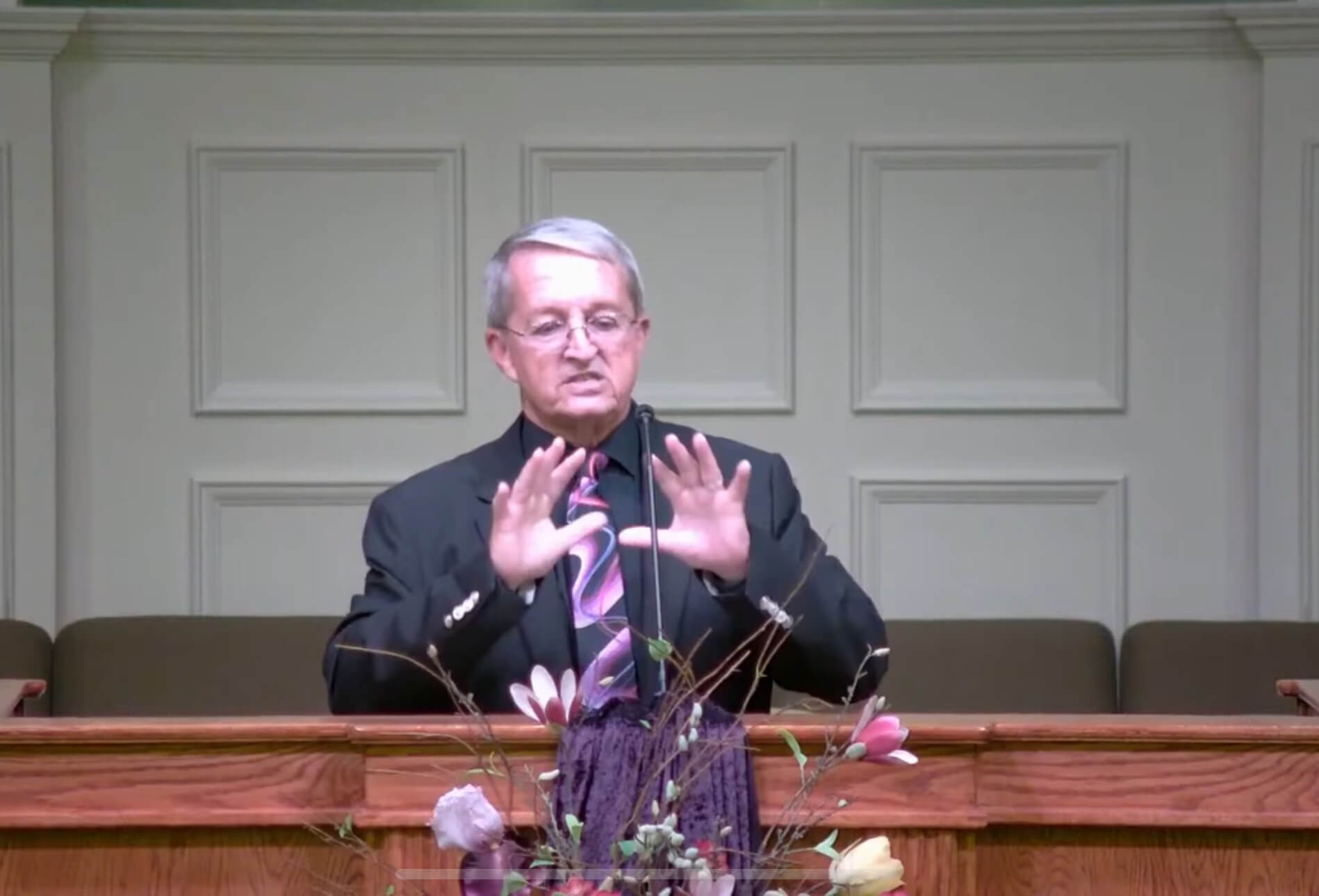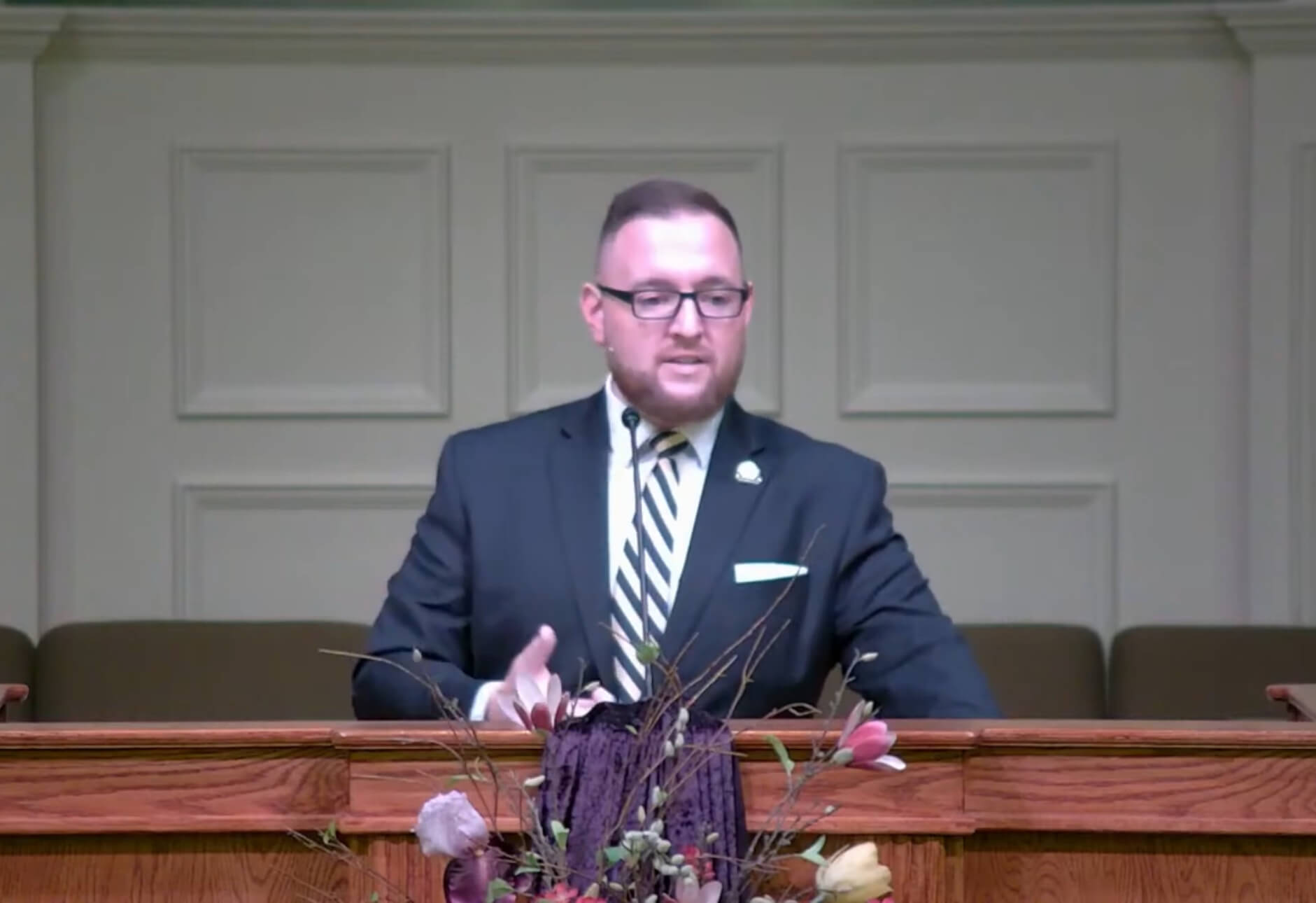Statement of Belief
The Statement of Belief of Fellowship Baptist Church.
All members of Fellowship must be in basic agreement with the church’s Statement of Belief, Covenant, and Constitution. Any reservations will be considered on an individual basis by the Elders.
What We Teach
Fellowship Baptist Church is in basic, fundamental agreement with the Second London Baptist Confession of Faith of 1689 and affirms the 5 Solas of the Reformation:
Sola Scriptura, or “Scripture alone,” – Scripture is the highest source of authority in faith and practice, the final court of appeal for a Christian’s life.
Sola Fide, or “faith alone,” – Justification—being made right with God—comes only through faith in Christ and is not of works.
Sola Gratia, or “grace alone,” – Salvation is an unearned gift of God’s grace (Ephesians 2:8–9).
Solus Christus, or “Christ alone,” affirms the exclusivity of Jesus’ role in salvation (John 14:6).
Soli Deo Gloria, or “to the glory of God alone,” –The purpose of creation, salvation, and everything else, and our goal as Christians, is the glory of God (1 Corinthians 15:28).
Statement of Belief
I. Scripture
We believe that the Holy Bible, as originally written, is the inspired, inerrant, and authoritative Word of God and is normative for the church in all speech, thought, practice, and doctrine. We believe the Word of God to be the truth and the supreme standard by which all human conduct, creeds, and opinions shall be tried.
(2 Timothy 3:16-17; 2 Peter 1:19-21)
II. True God
We believe there is one and only one living and true God, who is an infinite Spirit, the Maker and Supreme Ruler of heaven and earth, inexpressibly glorious, perfect in holiness, and worthy of all possible honor, confidence, love, and worship. The Godhead exists as three co-eternal and co-equal persons – the Father, the Son, and the Spirit. All three persons are equally God, executing distinct but harmonious offices in the great work of redemption.
(Genesis 1:26, 3:22, 11:7-8; Isaiah 6:8; Exodus 20:2–3; Deuteronomy 6:4; Isaiah 43:10-11; 44:6; Zechariah 14:9; Matthew 6:26, 28:19; Luke 1:35; John 1:1, 1:13, 3:8; 14:16, 17, 26, 20:28; Acts 5:3–4; Romans 1:7, 3:29-30, 9:5, 15:30; 1 Corinthians 3:16, 6:19, 8:4-6, 12:4-6, 11; 2 Corinthians 13:14; Ephesians 4:4–6; 2 Thessalonians 2:13; 1 Timothy 2:3–5; Titus 2:13; Hebrews 1:8, 9:14; James 2:19; 1 Peter 1:2-3; 2 Peter 1:1; 1 John 5:20; Jude 20–21)
III. God the Father
We believe that God the Father, the first Person of the Trinity, orders and disposes all things according to His own purpose and grace. He is the Creator of all things. As the only absolute and omnipotent Ruler in the universe, He is sovereign in creation, providence, and redemption. His fatherhood involves both His designation within the Trinity and His relationship with mankind. As Creator, He is Father to all men, but He is the Spiritual Father only to believers. He has decreed for His own glory all things that come to pass. He continually upholds, directs, and governs all creatures and events. In His sovereignty He is neither author nor approver of sin, nor does He diminish the responsibility of His moral, intelligent creatures. He has graciously chosen from eternity past those whom He would have as His own. He saves from sin all those who come to Him, and He becomes, upon their adoption, Father to His own.
(Genesis 1:1-31; 1 Chronicles 29:11; Psalm 103:19, 145:8, 9; Habakkuk 1:13; John 1:12; Romans 8:14-15, 11:36; 1 Corinthians 8:6; 2 Corinthians 6:18; Galatians 4:5; Ephesians 1:4-6, 11, 3:9, 4:6; Hebrews 12:5-9;1 Peter 1:17)
IV. Jesus Christ
We believe that the Lord Jesus Christ, the eternal Son of God and the second Person of the Trinity, was active in Creation, and became man without ceasing to be God. He was supernaturally conceived by the Holy Spirit and born of the virgin Mary, in order that He might reveal God and redeem sinful man.
(Matthew 1:23; John 1:1-3; Luke 1:35; John 1:14; Colossians 1:16; Hebrews 1:1-3; Titus 2:14; Isaiah 7:14)
We believe Jesus Christ came to Earth to glorify God by fulfilling prophecy, revealing God to mankind, teaching, performing miracles, living a sinless life, and sacrificing His life to pay the ransom for sinners.
(Matthew 4:23–24, 8:16–17, 11:2–5, 20:28; John 13:14; Romans 5:6-8; Hebrews 1:1–2; 1 Peter 2:22)
We believe in the bodily resurrection of Jesus Christ from the grave and His ascension to the right hand of God where He lives to sustain the world, sanctify the Church, make intercession for believers, and prepare a place for His people.
(Matthew 28:17; Mark 16:14; Luke 24:34-51; John 14:2-4, 20:10-29; Acts 1:1-7, 5:31; Romans 8:34; 1 Corinthians 15:5-7; Ephesians 1:19-20, 5:23-32; Colossians 1:17; Hebrews 7:25, 9:24; 1 John 2:1; Revelation 3:21)
We believe in Jesus’ personal, visible, bodily return to the Earth at the end of this age when He will gather the true Church to Himself, execute judgment upon the Earth and its inhabitants, establish His Kingdom on Earth, after which He will execute the Great White Throne Judgment, and finally will usher in the Eternal Kingdom – the New Heaven and New Earth.
(Psalm 110; Isaiah 2:2-4; Daniel 7:27; Zechariah 14:9; Matthew 19:28, 24:3, 27, 37, 39, 25:31; John 5:22-23; Acts 1:9-11; 1 Corinthians 1:7, 15:24-28; 1 Thessalonians 4:13-18; 2 Thessalonians 1:7-10, 2:8; James 5:7-8; 1 Peter 1:7, 13, 4:13; Revelation 20:1-6, 11-15, 21:1-5)
V. Holy Spirit
We believe that the Holy Spirit, being of the same nature as the Father and the Son, is a divine Person and the third Person of the Trinity. He was active in Creation, and in the revelation and inspiration of the Holy Scriptures. In relation to the unbelieving world, He restrains the evil one until God’s purpose is fulfilled, and He convicts of sin, of righteousness, and of judgment. In relation to believers, He bears witness to the truth of the gospel in preaching and testimony, He is the agent in the New Birth, and He seals, endures, guides, teaches, witnesses, sanctifies and helps the believer, and indwells every true child of God.
(Genesis 1:1-3; John 16: 8-11; Acts 5:30-32; John 3:5-6; Ephesians 1:13, 14; Mark 1:8; John 1:33; Acts 11:16; Luke 24:49; Romans 8:14, 16; Romans 8:26,27)
We believe that illumination is the work of the Holy Spirit whereby He enables the believer to understand Scripture, to accept the truthfulness of Scripture, to realize the implications of Scripture’s truths, and to apply them to the believer’s own personal life.
(Ephesians 1:18–19; 1 Corinthians 2:15-16; 1 Thessalonians 2:13, 1 John 2:18–27)
We believe that the baptism of the Holy Spirit occurs once, at the moment of salvation, and brings each believer into the body of Christ. The baptism of the Spirit unites us with Christ.
(Romans 6:3, 8:9-11, 16; 1 Corinthians 6:17, 12:13; Galatians 3:27)
We believe that the Holy Spirit administers spiritual gifts to the church for the purpose of glorifying Christ by implementing His work of redeeming the lost and building up believers in the most holy faith. The Holy Spirit sovereignly bestows gifts for the perfecting of the saints. Speaking in tongues and the working of sign miracles were only bestowed in the beginning days of the church and were for the purpose of authenticating the Apostles as revealers of divine truth. The sign gifts were never intended to be characteristic of the lives of believers.
(John 16:13-14; Acts 1:8; 1 Corinthians 12:4-11, 13:8-10; 2 Corinthians 3:18, 12:12; Ephesians 4:7-12; Hebrews 2:1-4)
VI. Satan and Demons
We believe in the personhood of Satan, that he is the unholy god of this age and the ruler of all powers of darkness and is destined to the just judgment of eternity in the Lake of Fire. In his fall, Satan took numerous angels with him, and he is the leader of the fallen angels or demons. Satan and demons oppose the cause of God and the people of God in the world through deception, accusation, enticement, and even physical destruction.
(Genesis 3:1-6; Leviticus 18:6–30; Deuteronomy 18:9–14, 32:16–17; Job 1:9–11; 2:4–5; Psalm 106:35–37; Zechariah 3:1; Matthew 4:1-34, 9:34, 12:22, 13:19, 16:23, 25:41; Mark 1:26, 3:22, 5:4–5, 15, 9:17, 20, 25, 39; Luke 13:16, 22:31; John 8:44; Acts 5:3, 13:8–10; 1 Corinthians 5:5, 7:5, 10:20; 2 Corinthians 4:4, 12:7-9; Ephesians 6:12; 1 Thessalonians 3:5; 1 Timothy 4:1; 2 Timothy 2:26; 1 Peter 5:8; Revelation 12:1-14, 13:14, 16:13-14, 20:3-10)
VII. Creation
We believe that God created, for His own glory, the Heavens and the Earth. God created everything “ex nihilo” (out of nothing) in six literal, 24 hour days, including all life, “each after its own kind.” He created everything by direct act, in perfection, according to the Genesis account. Mankind alone was created in the image and likeness of God.
(Genesis 1-2; Deuteronomy 22:5; Colossians 1:16-17; John 1:3)
VIII. Man
We believe that man was directly and immediately created by God in His image and likeness on the sixth day of Creation. Man was created free of sin with a rational nature, intelligence, volition, self-determination, and moral responsibility to God. God’s intention in the creation of man was that man should glorify God, enjoy God’s fellowship, live his life in the will of God, and by this accomplish God’s purpose for man in the world.
(Genesis 1:27, 2:7, 15-25; Isaiah 43:7; Colossians 1:16; James 3:9; Revelation 4:11)
We believe that God created all human beings with inherent value and dignity because they are made in His image. We are to value, protect, love, and have compassion for all human life equally and in its entirety. This includes the youngest lives from the moment of conception to the aged and all ethnicities without discriminating against those with genetic differences, deformities, or diseases. Therefore, we are to seek the protection and preservation of all human life which prohibits the taking of innocent life—including but not limited to abortion, euthanasia, and assisted suicide.
(Genesis 1:27, 2:7, 9:5-6; Job 33:4; Psalm 139:13–16, Jeremiah 1:4–5; Matthew 6:26; Luke 1:41; John 5:28–29; Acts 17:25; 1 Corinthians 15:51–52; 2 Corinthians 5:8–15)
We believe that God created mankind as male and female, and that this divinely determined distinction is good, proper, and to be celebrated. Maleness and femaleness are biologically determined at conception and are not subject to change. Because we live in a fallen world, affected by the curse of sin, rare genetic anomalies do occur. However, every person should seek to glorify God as he or she was created. Any intent or attempt to adopt a gender identity other than one’s birth gender is immoral rebellion against God, and therefore, sin. The curse of sin has resulted in sinful, disordered affections that manifest in some people as same-sex attraction. Salvation grants sanctifying power to renounce such dishonorable affections as sinful and to mortify them by the Spirit.
(Genesis 1:26-27, 2:24, 4:1, 19:24-28; Matthew 19:3-6; Romans 8:13; 1 Corinthians 6:9-11; 1 Timothy 1:10; Jude 7)
IX. Fall of Man
We believe that man was created in innocence under the law of his Maker, but by voluntary transgression fell from his sinless and happy state. As a consequence, all mankind are now sinners, not only by constraint, but by choice, and therefore, under just condemnation without defense or excuse.
We believe that as the representative of humanity, Adam’s sin and guilt is imputed to all mankind. Man in his fallen state is spiritually corrupt, spiritually dead, lost, under sin, under the power of Satan, unable to perform good before God, and under the condemnation of God. Because of total depravity, sinners have lost the ability and desire to be righteous and are unable to submit to or seek God.
(Genesis 3:1-6; 1 Kings 8:46; Psalm 7:11, 14:3; Isaiah 64:6; Jeremiah 17:9; Mark 4:15; John 3:18, 8:34, 15:5; Romans 1:13, 32, 18-20, 3:11, 23, 5:10-21, 6:19-20, 8:7-8; 1 Corinthians 2:14; 2 Corinthians 4:4; Galatians 3:22; Ephesians 2:1-3, 12; Colossians 2:13; 1 Thessalonians 2:13; Titus 1:15–16; Hebrews 11:6; 1 John 3:10; 5:19)
X. Atonement for Sin
We believe that all mankind is sinful and in need of salvation. The salvation of sinners is wholly of grace through the mediatorial office of the Son of God. By the appointment of the Father, Jesus Christ freely took upon Himself human nature, yet without sin honored the divine law by His personal obedience. By His death, Christ made a full, vicarious, substitutionary atonement for our sins. His atonement consisted not in setting an example by His death as a martyr but was a voluntary substitution of Himself in the sinner’s place, the just dying for the unjust. Christ the Lord bore our sin in His own body on the tree. He rose from the dead and He is now enthroned in Heaven interceding for those whom God draws near through Him. He is in every way qualified to be a suitable, compassionate and all-sufficient Savior. Christ died to secure salvation for all those who believe in Him, and His substitutionary atonement and propitiation effectively accomplished what the divine will of the Godhead intended.
(Isaiah 53:4-7, 11; Matthew 1:21, 18:11, 20:28; Luke 19:10; John 3:16, 10:11-15; Acts 15:11; Romans 3:24-25, 8:31-34; 1 Corinthians 15:3, 4; 2 Corinthians 5:21; Ephesians 2:8; Philippians 2:7; Hebrews 2:14-16; 7:25 10:10-14; 1 Peter 2:21-24, 3:18; 1 John 4:10)
XI. Grace in the New Creation
We believe that to be saved, sinners must be born again. The new birth is a new creation in Christ Jesus and occurs instantaneously and not as a process. In the new birth, the one dead in trespasses and in sins is made a partaker of the divine nature and receives the free gift of God: eternal life. The new creation is brought about in a manner beyond our comprehension solely by the power of the Holy Spirit in connection with divine truth, securing our voluntary obedience to the Gospel; the proper evidence of which appears in the fruits of repentance and faith and newness of life.
(John 3:3; 2 Corinthians 5:17; 1 John 5:1; John 3:6,7; Acts 16:33, 36; 2 Peter 1:4; Romans 6:23; Ephesians 2:1; 2 Corinthians 5:19; Colossians 2:13; John 3:8)
XII. Justification
We believe that the great gospel blessing, which Christ secures for those who believe in Him, is justification. This justification includes the pardon of sin and the gift of eternal life on the principle of righteousness and is bestowed not in consideration of any works of righteousness which the believer has done, but solely through faith in the Redeemer’s blood; His righteousness is imputed to the believer.
(Isaiah 53:11; Zechariah 13:1; Acts 13:39; Romans 3:28, 5:1, 9, 8:1; Galatians 3:16-21; Philippians 3:9)
XIII. Faith and Salvation
We believe that personal saving faith in the Lord Jesus Christ and His finished work on the cross is a gift from God and the only condition of salvation. God draws His own to Himself and grants them faith and salvation. True saving faith will result in a life of repentance and obedience to the Gospel.
(Matthew 7:15-20; John 6:37, 44, 10:14-16; Acts 16:31; Romans 3:26, 8:30, 9:24; 1 Corinthians 1:9; Ephesians 2:8-9; 1 Thessalonians 2:12; 2 Timothy 1:9, 3:15; James 2:26; 1 Peter 5:10)
XIV. Sanctification
We believe in the sanctification of every believer in Christ. Sanctification is the setting apart of the believer from sin and into Christ.
(Romans 6:19-22, 12:1-2; 1 Corinthians 6:11; 1 Thessalonians 3:13-4:3).
We believe there are three aspects of sanctification: positional, progressive, and final sanctification.
- Positional sanctification is wholly a work of God and refers to the initial moral change within the believer whereby he is set apart from sin and into Christ.
(Romans 6:11, 14; 1 Corinthians 6:11; Titus 3:5)
- Progressive sanctification is the process by which believers are progressively conformed into the image of Christ whereby the believer cooperates with the conviction and empowering of the Holy Spirit to rid his life of sin and be conformed to the image of Christ.
(Romans 8:29; 2 Corinthians 3:18; Ephesians 4:17-24; Colossians 3:10)
- Final sanctification refers to the completion of the conformity of the believer to the image of Christ. Complete eradication of sin is not possible in this life, but adequate provision is made for victory through the power of the indwelling Holy Spirit. The promise that future and final redemption is certain should comfort believers, make them steadfast in service, and motivate them to blameless and pure living.
(Romans 8:23, 30; 1 Corinthians 15:42-50, 58; 2 Corinthians 5:2-4; Galatians 5:16-25; Ephesians 4:22-24; Philippians 3:12, 21; Colossians 1:28, 3:9-10; 1 Thessalonians 4:17-18; 2 Thessalonians 2:13-14; 1 Peter 1:14-16; 2 Peter 3:14; 1 John 3:2-9)
XV. The Security of the Saints
We believe that, because of the eternal purpose of God and the extent of the atoning work of Christ, all who are truly born again are kept by God the Father for Jesus Christ. It is the privilege of believers to rejoice in the assurance of their salvation through the testimony of God’s Word and the witness of the Spirit. However, our assurance does not permit the use of Christian liberty as an occasion for sinful living.
(John 10:28,29; Romans 6:15-22, 8:16-17, 35-39, 13:13-14; Galatians 5:13, 25-26; Philippians 1:6; Titus 2:11-14; Jude 1)
XVI. Marriage and the Home
We believe the home was the first institution God provided for mankind, and that marriage is a sacred covenant and honorable for all. Marriage is a picture of the union of Christ and His Church and is defined and regulated in God’s Word. As God’s Word teaches, a believer is not to marry an unbeliever and the only legitimate marriage is the joining of one man and one woman in lifelong covenant together. What God has joined together let no man separate.
(Genesis 2:12-24; 19:5, 13, 26:8-9; Leviticus 18:1-30; Mark 10:9; Romans 1:26-29, 7:2; 1 Corinthians 5:1; 6:9, 7:2, 7:10; 2 Corinthians 6:14-7:1; 1 Thessalonians 4:1-8; Galatians 6:7; Ephesians 5:21-23; Hebrews 13:4)
We believe that God has commanded that no sexual activity is to be engaged in outside of marriage. All forms of sexual immorality including but not limited to homosexuality, lesbianism, bisexuality, bestiality, incest, fornication, adultery, and pornography are sinful perversions of God’s gift of sex.
(Leviticus 18:1-30; Acts 15:29; Romans 1:26-32, 13:13; 1 Corinthians 5:11, 6:9-11, 18, 7:2, 10:8; Galatians 5:19, Ephesians 5:3-5; Colossians 3:5; 1 Thessalonians 4:3; 1 Timothy 1:10; Revelation 21:8, 22:15)
We believe that those who lack the desire or opportunity for marriage are called to serve God in singleness and chastity which is as noble a calling as marriage.
(1 Corinthians 7:6-8)
XVII. The Church
- Universal Church
We believe the Universal Church is made up of all genuine believers in Christ during this present age, permanently united by baptism in the Holy Spirit into a spiritual union with Christ and with all other church-age believers, thus forming the body of Christ. Christ is the head of the body, and every believer is a member of that body individually.
(Matthew 16:18; Ephesians 1:22-23, 3:2-6, 4:4, 5:23; Acts 1:8, 2:1,2; 1 Corinthians 12:12-28; 1 Thessalonians 4:13-18)
- Local Church
We believe that a local church is a congregation of immersed believers; associated by covenant of faith and fellowship of the gospel; observing the ordinances of Christ; governed by His laws; and exercising the gifts, rights, and privileges invested in them by His Word. The true mission of the church is to glorify God by making disciples of Christ.
We believe the local church has the absolute right of self-government, free from the interference of any hierarchy of individuals, organizations, or civil government. The one and only Head of the church is Christ through the Holy Spirit. It is biblical for churches to cooperate with each other in contending for the faith and for the furtherance of the gospel.
We believe that each local church, through the interpretation and application of Scripture, and the oversight of its Elders, is the sole judge of the measure and method of its cooperation on all matters of membership, policy, government, discipline, and benevolence; the will of the local church is final.
(Matthew 18:15-17; Acts 1:8, 2:41, 42, 15:4-28, 20:7, 28; 1 Corinthians 11:2; Ephesians 1:22, 23, 4:11, 5:23-24; Colossians 1:18; 1 Timothy 3:15)
- Offices of the Church
We believe that the two offices of the Church are Elders (also called Bishops and Pastors) and Deacons (servants), men whose qualifications and duties are clearly defined in the Scriptures.
(1 Timothy 2:12, 3:1-13; Titus 1:5-9; 1 Peter 5:1-5)
- Elders
The primary responsibility of an Elder is the spiritual oversight and shepherding of the church. Elders are to oversee the church: rule, teach, and preach; exhort and refute error; determine church policy; equip the members of the church for ministry; ordain other Elders; and act as shepherds, setting an example for all. These leaders lead or rule as servants of Christ and have His authority in directing the church. The congregation is to submit to the leadership of the Elders.
(Acts 15:22; 20:28-30; Romans 12:8; Ephesians 4:12; 1 Thessalonians 5:12; 1 Timothy 3:2-5, 12, 4:13-14; 5:17-22; 2 Timothy 2:15, Titus 1:9; Hebrews 13:7, 17; James 5:14; 1 Peter 5:1-5)
- Deacons
The primary responsibility of Deacons is to serve in any capacity necessary to allow the Elders to concentrate on prayer and the ministry of the Word. This service is often reflected in caring for the routine material matters of the church including but not limited to, caring for benevolent needs of church members, caring for the widows of the church, caring for and maintaining of church facilities, and supervising the financial business of the church.
(Acts 6:1–6, 11:29-30; 1 Timothy 5:3-16)
XVIII. Ordinances
We believe that the two ordinances of the Church are Baptism and The Lord’s Supper.
- Baptism – We believe that the Christian baptism is the immersion of a believer in water to show a solemn and beautiful outward sign of our faith in the crucified, buried, and risen Savior. Baptism by immersion demonstrates our death and burial to sin and resurrection to a new life in Christ. It is a prerequisite for church membership.
(Matthew 3:16, 28:19; Mark 1:5, 10; John 3:23; Acts 2:38; 8:12, 26-39, 10:34-48, 16:31-33; Romans 6:3-5; Colossians 2:12-13)
- The Lord’s Supper – We believe that The Lord’s Supper is the commemoration of His death until He comes and should be preceded always by solemn self-examination.
(Matthew 26:26–29; Mark 14:22–25; Luke 22:14-20; 1 Corinthians 11:23-28)
XX. Civil Government
We believe that civil government is of divine appointment as a servant of the Lord and is appointed for the purpose of, and is therefore limited to, the interest and good order of human society as prescribed in Scripture by the Lord. Civil authorities are to be prayed for, conscientiously honored, and obeyed in so far as they operate within the limits of their God-ordained authority and in accordance with the will of our Lord Jesus Christ who is the only Lord of the conscience and the coming King of Kings and Lord of Lords. When civil authorities require something forbidden by God, or forbid something required by God, the duty of Christians is to humbly, respectfully, and submissively disobey.
(Daniel 3:12-18; Acts 4:19-20, 5:29; Romans 13:1-7; 1 Timothy 2:1-2; Revelation 19:16)
XXI. Last Things
- The Second Advent of Christ–We believe in the “Blessed Hope,” the personal and imminent coming of the Lord Jesus Christ for His redeemed ones and in His return to Earth following the Tribulation with His saints to establish His earthly Kingdom.
(Daniel 7:13–14; Matthew 24:29-30; Luke 1:33; 1 Thessalonians 4:13-18; 2 Thessalonians 1:6-12; Revelation 19:11-20:6, 22:3)
- The Judgment Seat of Christ–We believe that every saved person will appear before the “Judgment Seat” to be judged by the Lord regarding faithful service.
(Romans 14:10; 1 Corinthians 3:11-15; 2 Corinthians 5:10)
- The Millennial Kingdom–We believe that the Millennial Kingdom on Earth will be ruled by Jesus Christ’s physical presence from the Throne of David.
(Isaiah 9:6,7; Luke 1:32; Acts 2:29, 30)
- The Eternal State–We believe in the bodily resurrection of all men, the saved to eternal life and the unsaved to judgment and everlasting punishment. The souls of the redeemed are at death absent from the body and present with the Lord. In conscious bliss they await the first resurrection when body and soul are reunited to be forever glorified with the Lord. After death, the souls of the unbelievers remain in conscious misery until the second resurrection when with spirit, soul and body reunited they shall appear before the Great White Throne Judgment. They will be judged and cast into the Lake of Fire, not to be annihilated but to suffer everlasting conscious punishment.
(Joel 3:1-16; Matthew 25:46; Luke 16:19-26; John 5:28-29; 2 Corinthians 5:8,10; Philippians 1:23; Revelation 20:1-22:5)
